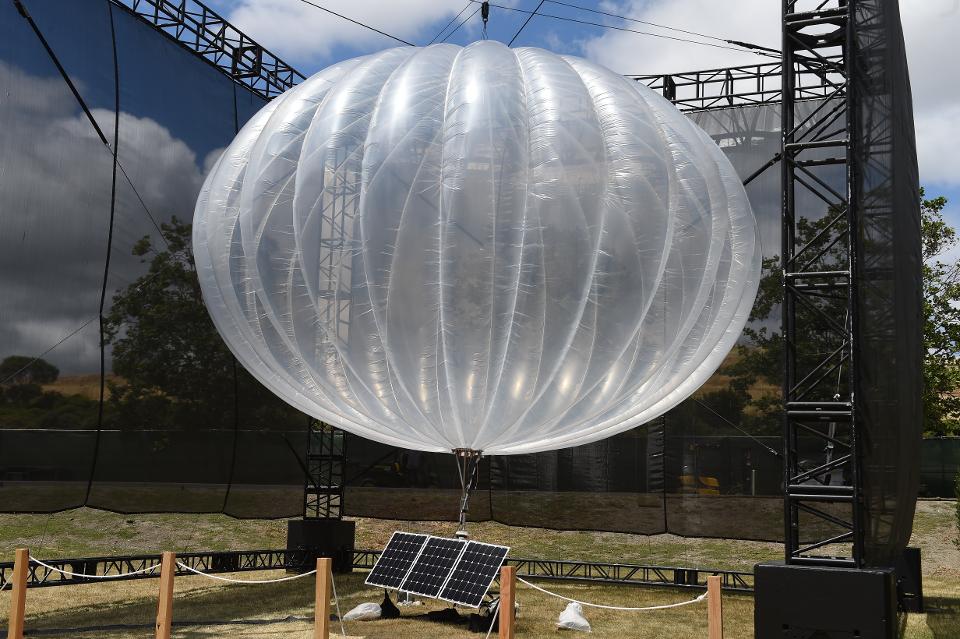Telkom and Loon on Tuesday announced the availability of mobile internet service via the Loon technology to Kenyans, starting July 2020.
This comes as the project partners approach the completion of their network integration tests, that have seen them successfully assess service quality across their infrastructure and respective networks.
In one field testing session in late June, Loon and Telkom registered an uplink speed of 4.74 mbps, a downlink speed of 18.9 mbps, and latency of 19 milliseconds (ms). In this and subsequent testing, the service was used for applications such as email, web browsing, data calls e.g via WhatsApp, video calls, and YouTube.
Even with Loon’s advanced machine learning algorithms that work to keep the balloons up, there are times when certain impediments such as wind patterns and restricted airspaces, could result in intermittent service availability.
Loon and Telkom are working together to limit any potential service disruptions and improve the user’s experience. As Loon gains more experience flying in Kenya, and dispatches more balloons to the service region, it is expected that service consistency will increase. In addition, with the Loon technology being a solar-powered solution, customers will get to experience mobile Internet service availability from 6:00 am to 9:00 pm.
The service will initially cover a region spanning nearly 50,000 square kilometres, including the areas of Iten, Eldoret, Baringo, Nakuru, Kakamega, Kisumu, Kisii, Bomet, Kericho, and Narok.
Telkom Kenya’s Chief Executive Mugo Kibati in a joint statement said the development marks an exciting milestone for internet service provision in Africa and the world, more so that the service will pioneer in Kenya.
“This being a purely data service and with the continued migration of communication towards data-supported platforms, the internet-enabled balloons will be able to offer connectivity to the many Kenyans who live in remote regions that are underserved or totally unserved, and as such remain disadvantaged,” said Kibati.
He further stated that the new technology will also complement Telkom’s ongoing strategy to further widen its network coverage as well as enable the company realise its brand promise; to be Kenya’s preferred data network.”
With the advent of the COVID-19 pandemic, the impact of this crisis has made online education, and other crucial interventions to the country such as telemedicine as well as digitised and automated platforms to enable the consumer still access service, the new normal.
Loon’s Chief Executive Alastair Westgarth said the imminent roll out is the culmination of years of work and collaboration between Loon, Telkom, and the government.
‘Without the support and engagement by various government agencies, today would not be possible. We are incredibly grateful to the many governmental stakeholders who helped usher in Africa’s first application of this innovative technology.” said Mr Westgarth.
To provide service in Kenya, Loon and Telkom are utilising a fleet of around 35 or more separate balloons that are in constant motion in the stratosphere above eastern Africa.
Balloons are launched from locations in the United States and navigate to Kenya using wind currents in the stratosphere.
Even with Loon’s advanced machine learning algorithms that work to keep balloons above the service region, there are times when certain stratospheric wind patterns, combined with other impediments such as restricted airspaces, will result in limited service availability to those below.
Loon and Telkom say they are working together to limit these service disruptions. As Loon gains more experience flying in Kenya, and dispatches more balloons to the service region, it is expected that service consistency will increase.
“In light of the spread of COVID-19, Telkom and Loon are working as fast as we can to realise service deployment. This will also enable us support the Kenyan Government’s efforts to manage the current crisis in the short-term, and to establish sustainable operations to serve communities in Kenya in the long-term. The Loon service has the capacity to bring about positive impact; connecting targeted communities to emergency services, as well as ensure enhanced and alternative communication options during this time.” added Mr Westgarth.
“We remain intent on expediting all projected timelines with the primary objective being to further shorten the total time taken towards progressive service deployment.” Kibati concluded.
See Also>>> Hold 4G For Now and Sort Most Urgent Needs













Leave a comment